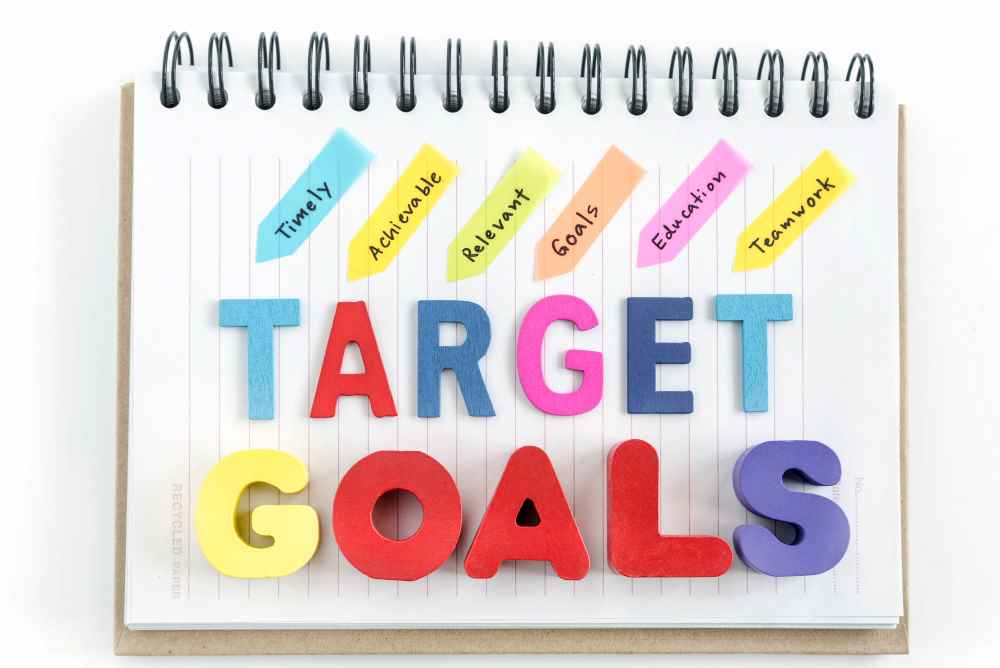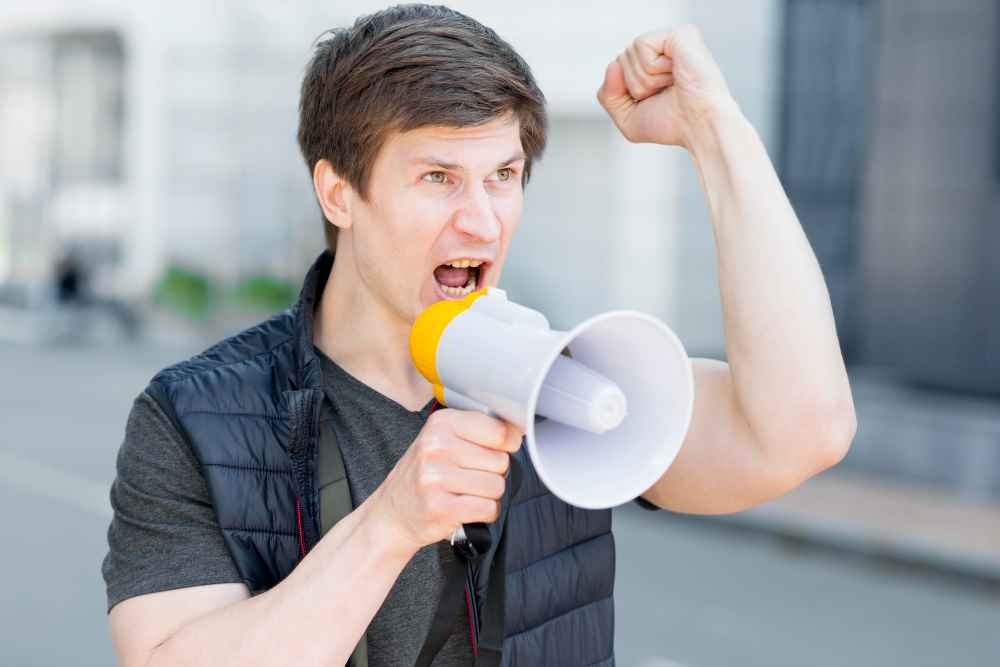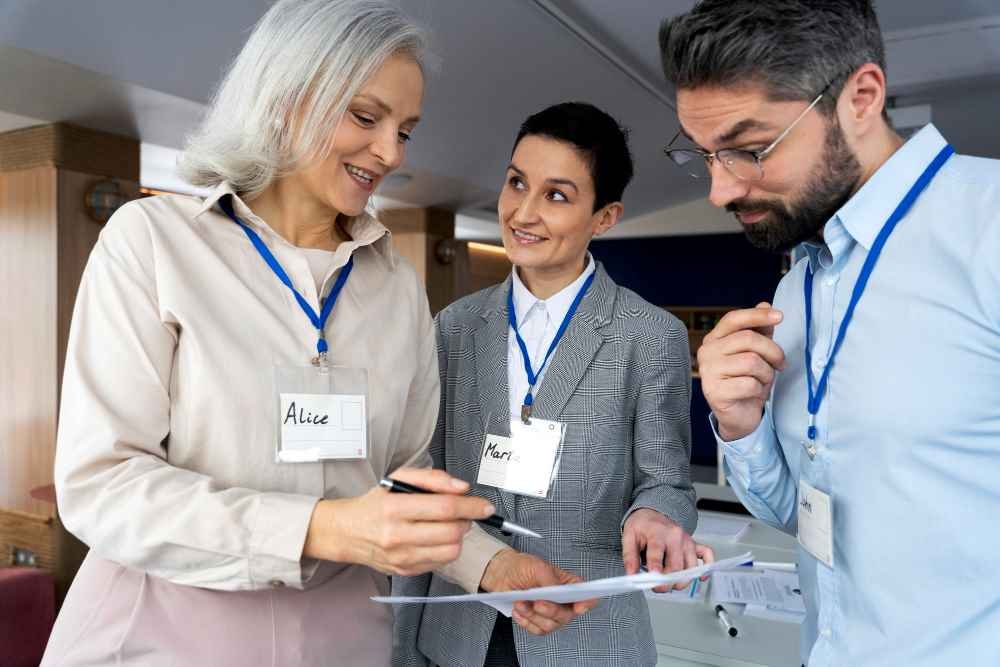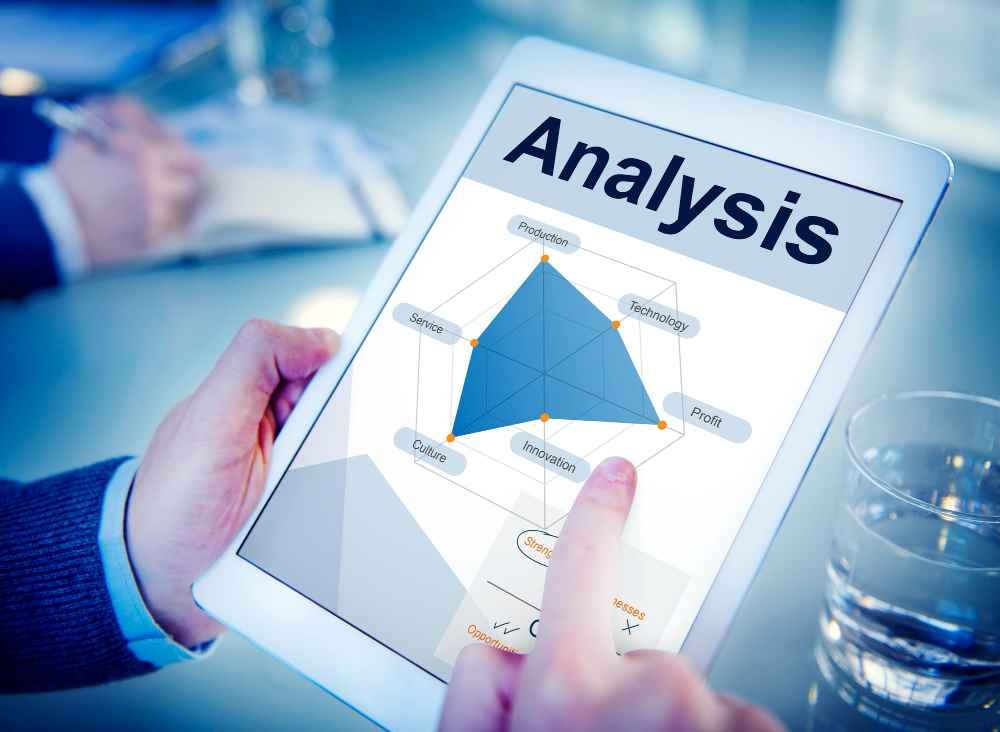Make Your Kitsap Event a Hit: Top Promotion Strategies
Event promotion in Kitsap County is the lifeblood of any successful event, particularly for small businesses. In a crowded marketplace, standing out and ensuring your event is a success requires a well-crafted and powerful strategy. This blog will provide you with top-tier tips to boost your event promotion in Kitsap County, helping you skyrocket attendance and make a lasting impact.
Understanding Your Target Audience

Imagine you’re throwing a party. To make sure everyone has a great time, you need to know who’s coming and what they enjoy. Event promotion works the same way.
- Who Are You Trying to Reach?
Start by thinking about the people you want to attend your event. Are they families, young adults, or business professionals? Knowing this helps you decide how to promote your event in a way that appeals to them.
- What Are Their Interests?
Next, consider what your audience likes. If you’re hosting a local food festival, your audience might be food lovers who enjoy trying new dishes. If you know what they’re interested in, you can highlight those things in your promotions to grab their attention.
- Tailor Your Promotion to Their Preferences
Finally, once you understand who your audience is and what they like, adjust your promotion to match. For example, if your audience spends a lot of time on social media, focus your promotions there. Or, if they prefer local community events, consider partnering with local businesses to spread the word.
Why Is This Important?
Understanding your audience is like having a roadmap for your event promotion. It guides you in making decisions that will attract the right people to your event. When you know your audience well, your promotion becomes more effective, leading to a successful event with more attendees.
Setting Clear Event Goals

Think of planning an event like going on a road trip. Before you start driving, you need to know where you’re going. Setting clear event goals is like picking your destination. It gives you a clear direction and helps you decide the best way to get there.
- What Do You Want to Achieve?
Start by asking yourself what you want your event to accomplish. Here are a few common goals:
- Generate Leads: If you want to find new customers or clients, your goal might be to collect contact information from attendees.
- Build Brand Awareness: If you want more people to know about your business, your goal could be to make your brand more visible in the community.
- Increase Sales: If you want to boost your revenue, your goal might be to sell products or services during the event.
- How Goals Guide Your Promotion Efforts
Once you have a clear goal, it becomes easier to plan your promotion. For example, if your goal is to generate leads, you might focus on attracting the right people to your event who are interested in what you offer. If your goal is to increase sales, you might promote special discounts or offers that will encourage people to buy from you during the event.
- Why Clear Goals Are Important
Without clear goals, your promotion efforts can feel scattered, like driving without a destination in mind. You might end up wasting time and resources on things that don’t really help you achieve what you want. But when you set clear goals, you give your promotion efforts a clear purpose, making it more likely that your event will be a success.
Setting clear event goals is about deciding what you want to get out of your event. It helps you focus your promotion on what matters most, making your event more effective and worthwhile.
Creating a Compelling Event Theme

Imagine planning a party—if you choose a fun and exciting theme, like a tropical beach party, people will be more excited to attend. The same idea applies to your event.
- What Is an Event Theme?
An event theme is the overall idea or concept that ties everything about your event together. It’s like the flavor of your event that makes it unique and memorable. For example, if you’re a small bakery, your event theme could be “Sweet Summer Delights,” where everything revolves around summer-themed desserts.
- Why Is a Strong Theme Important?
A strong theme grabs people’s attention and makes your event stand out. It’s what makes your event feel special. When your theme is interesting, more people will want to attend because they feel it offers something different and exciting.
- How Should Your Theme Align with Your Brand?
Your event theme should match your business’s identity and what your audience likes. If you run a fitness studio, a theme like “Get Fit for Fall” could align with your brand’s focus on health and wellness. When your theme fits your brand, it helps reinforce what your business is all about, making it easier for people to connect with your message.
- Why Should Your Theme Resonate with Your Audience?
Your theme should appeal to the people you want to attract. If your audience is families, a theme like “Fun Family Fiesta” could draw them in. When your theme resonates with your audience, it makes them feel like the event was made just for them, increasing the chances they’ll attend.
- How Does a Unique Theme Set You Apart?
A unique and engaging theme helps your event stand out from others. If every local event is doing the same thing, a fresh and creative theme can make yours the one people remember and talk about. It’s the difference between blending in and being the event everyone wants to attend.
Creating a compelling event theme is about choosing a central idea that makes your event exciting and memorable. It should reflect your business’s identity, appeal to your audience, and help your event stand out from the crowd.
Building Anticipation with a Countdown

Think about how excited people get as New Year’s Eve approaches—they count down the days until midnight. You can use the same idea to create excitement for your event.
- What Is a Countdown?
A countdown is simply a way to mark the days leading up to your event. It’s like saying, “Only 10 days left until the big day!” This builds excitement because people start looking forward to the event as the day gets closer.
- How to Use a Countdown
You can share your countdown on social media, through email, and on your website. For example:
- Social Media: Post daily updates like “5 days until our grand opening!” with eye-catching images or videos.
- Email Marketing: Send out emails reminding people how many days are left until the event, along with a special offer or sneak peek to keep them interested.
- Website: Display a countdown timer on your homepage, so everyone who visits your site knows the event is coming soon.
- Why Does a Countdown Work?
A countdown works because it creates a sense of urgency. When people see that time is running out, they feel more motivated to take action—like signing up for your event or buying tickets—because they don’t want to miss out.
- Encouraging Early Sign-Ups
As the countdown progresses, people may feel a stronger push to register early to secure their spot. You can even offer special discounts or bonuses for those who sign up before a certain date, making the countdown even more effective.
- How Does This Benefit Your Event?
By building anticipation with a countdown, you’re making your event feel like something people should be excited about and look forward to. This helps increase the number of attendees and creates a buzz around your event that can lead to greater success.
Using a countdown is a simple but powerful way to get people excited about your event, encouraging them to sign up early and not miss out on the big day.
Leveraging Social Media Powerfully

Social media can be a powerful tool for promoting your event. Think of it as a megaphone that helps you spread the word to a large audience quickly and effectively.
- Why Is Social Media Important?
Social media platforms like Facebook, Instagram, and Twitter have millions of users, many of whom are potential attendees for your event. These platforms allow you to reach your target audience where they already spend a lot of their time. This makes social media a game-changer when it comes to promoting events.
- How to Use Social Media to Promote Your Event
Here’s how you can use social media effectively:
- Share Engaging Content: Post regular updates about your event, such as behind-the-scenes photos, sneak peeks of what attendees can expect, or short videos. The goal is to keep your audience interested and excited about the event.
- Run Contests: Contests are a fun way to get people involved and talking about your event. For example, you could run a contest where people have to share your event post to enter a giveaway. This not only engages your audience but also helps spread the word to their friends and followers.
- Use Relevant Hashtags: Hashtags are like labels that help people find your posts on social media. By using popular and relevant hashtags related to your event, you make it easier for more people to discover your content. For example, if your event is in Kitsap County, you might use hashtags like #KitsapEvents or #KitsapCommunity.
- Reaching Your Target Audience
When you post on social media, it’s important to think about who you want to reach. Tailor your content to appeal to your target audience. If your event is for families, post content that shows why your event is family-friendly. If your audience is young adults, focus on what makes your event exciting or trendy.
- Why Social Media Is a Game-Changer
Social media is powerful because it allows you to promote your event to a large audience without spending a lot of money. You can reach people directly, interact with them, and create a buzz around your event. This can lead to higher attendance and a more successful event.
Using social media effectively means sharing engaging content, running contests, and using relevant hashtags to reach your target audience. By leveraging the power of social media, you can significantly boost your event’s visibility and attract more attendees.
Partnering with Local Businesses

Imagine you’re planning a community event. You want as many people as possible to know about it and attend. Partnering with other local businesses can help you achieve this by working together for mutual benefit.
- What Does It Mean to Partner with Local Businesses?
Partnering with local businesses means teaming up with other businesses in your area that offer products or services related to yours. For example, if you own a bakery, you might partner with a local coffee shop. Both of you can promote each other’s events, such as a coffee and dessert tasting, which can attract more customers for both businesses.
- How Can You Cross-Promote Each Other’s Events?
Cross-promotion means that you and your partner business share information about each other’s events with your own customers. Here’s how it works:
- Share Each Other’s Flyers: If you’re hosting an event, your partner business can display your flyers in their store, and you can do the same for them.
- Social Media Shout-Outs: You can promote each other’s events on your social media platforms. For example, you could post about your partner’s event on your Facebook page, and they can do the same for your event.
- Joint Events: You might even consider hosting an event together. This way, you combine your customer bases and attract more people who might be interested in what both of you have to offer.
- Why Are Partnerships Beneficial?
Partnerships are powerful because they allow you to reach a larger audience. When you work with another business, you gain exposure to their customers, who might not have heard about your event otherwise. This expanded reach can lead to higher attendance at your event.
- How Partnerships Boost Attendance and Exposure
By partnering with a local business, you can tap into their customer base, increasing the number of people who know about your event. This not only boosts attendance but also raises awareness of your business in the community. People who come to your event through your partner might become new customers for you, and vice versa.
- A Real-Life Example
Imagine a local fitness studio partnering with a nearby health food store. The fitness studio could promote a special workout event at the health food store, and the store could offer free samples at the studio’s event. Both businesses benefit by attracting new customers and increasing their visibility in the community.
Partnering with local businesses is a smart way to expand your reach, increase event attendance, and gain more exposure. By working together and cross-promoting each other’s events, you can achieve better results than you might on your own.
Offering Exclusive Incentives

Imagine you’re deciding whether to attend an event. If you know you’ll get something special—like a discount or a free gift—wouldn’t you be more likely to go? That’s the idea behind offering exclusive incentives.
- What Are Exclusive Incentives?
Exclusive incentives are special offers or deals that are only available to people who attend your event. These can be things like limited-time discounts, free products, or even a chance to win something in a giveaway. The key is that these incentives are exclusive, meaning they’re not available to just anyone, only to those who come to your event.
- Why Do Exclusive Incentives Work?
People love feeling like they’re getting something special or a good deal. When you offer an exclusive incentive, it creates a sense of urgency and excitement. People don’t want to miss out on something that’s only available for a short time or to a limited number of people. This can make them more eager to attend your event.
- Examples of Incentives You Could Offer
Here are a few ideas for exclusive incentives you could use to attract attendees:
- Limited-Time Discounts: Offer a discount on your products or services that’s only available to event attendees. For example, “Get 20% off your next purchase, but only if you attend our event on Saturday!”
- Freebies: Give away a small gift to everyone who attends your event. It could be something related to your business, like a free sample, or something fun, like a branded keychain or pen.
- Giveaways: Run a raffle or contest at your event where attendees have a chance to win a bigger prize. This could be a valuable product, a free service, or even a gift card.
- Creating a Sense of Exclusivity
Exclusivity makes people feel like they’re getting something special that not everyone else can have. This feeling can drive more people to sign up for your event. You can create exclusivity by limiting the number of discounts or freebies available or by offering them only to the first 50 people who register or show up.
- How Incentives Drive Registrations
When people see that they’ll get something valuable or special just for attending your event, they’re more likely to register and show up. These incentives give them an extra reason to take action, which can significantly boost your event attendance.
Offering exclusive incentives is a powerful way to attract more people to your event. By providing limited-time discounts, freebies, or giveaways, you create excitement and a sense of urgency that encourages people to register and attend.
Email Marketing Magic

Think of email marketing as sending a personal invitation to your event, right to someone’s inbox. It’s a simple yet powerful way to connect directly with your audience and encourage them to attend your event.
- Why Is Email Marketing Important?
Email marketing is important because it allows you to communicate directly with people who are already interested in your business. When you send an email, you’re reaching out to people who have chosen to hear from you, making it more likely they’ll pay attention to what you have to say.
- Building an Email List
To start, you need an email list—this is a list of people’s email addresses who have agreed to receive updates from you. You can build this list by asking customers to sign up for updates on your website, in your store, or at past events. The more people on your email list, the more people you can reach when promoting your event.
- Sending Targeted Promotions
Once you have an email list, you can send out targeted promotions. This means you tailor your emails to different groups within your list based on their interests or past behavior. For example, if you’re hosting a cooking class, you might send a special invite to people who have shown interest in food-related events before. Targeted promotions make your emails more relevant to the recipients, increasing the chances they’ll respond positively.
- Personalizing Your Emails
Personalization is about making your emails feel more personal and less like mass communication. You can do this by addressing the recipient by their name and tailoring the content to their preferences. For example, instead of starting your email with “Dear Customer,” you could start with “Hi Sarah!” and mention something specific they might like about the event. Personalized emails make people feel valued and can significantly increase engagement.
- How Does Email Marketing Make an Impact?
Email marketing can have a big impact because it’s direct and personal. People check their email regularly, and when they see a message from you, they’re likely to read it if it feels relevant and personalized. This can lead to more people signing up for your event, increasing attendance and making your event more successful.
Email marketing is like sending a personalized invitation to people who are already interested in your business. By building an email list, sending targeted promotions, and personalizing your messages, you can effectively promote your event and drive more people to attend.
Optimizing Your Event Website
Think of your event website as the online home for your event. It’s where people go to learn about your event, sign up, and get excited about attending. Making sure your website is easy to use and looks good is key to attracting more attendees.
- Why Is Your Event Website Important?
Your event website is the main place where people will find all the information they need about your event. It’s often the first impression they get, so it’s important to make it a good one. A well-designed website can help convince people to register and attend your event.
- Make It User-Friendly
A user-friendly website is one that’s easy to navigate and understand. This means that when someone visits your site, they can quickly find what they’re looking for without getting confused. Here’s how to do it:
- Simple Navigation: Make sure your website’s menu is clear and easy to use, with obvious sections like “About the Event,” “Schedule,” and “Register Now.”
- Mobile-Friendly: Many people will visit your website on their phones, so it should look good and work well on mobile devices.
- Fast Loading: Your website should load quickly, so visitors don’t get frustrated and leave before they’ve even seen what you’re offering.
- Make It Informative
Your website should provide all the essential details about your event so people know exactly what to expect. Here’s what to include:
- Event Date and Time: Clearly display when the event is happening.
- Location: Provide the address, along with a map or directions if possible.
- Agenda or Schedule: Let people know what’s happening and when, so they can plan their visit.
- Speakers or Special Guests: Highlight any notable speakers or guests to build excitement.
- Make It Visually Appealing
A visually appealing website grabs people’s attention and makes them want to explore more. Use high-quality images, appealing colors, and a clean layout to create a professional look. Remember, your website should reflect the vibe of your event, whether it’s fun and casual or formal and professional.
- Include Registration Options
Make it easy for people to sign up for your event right on your website. Include a clear “Register Now” button that stands out, so visitors don’t have to hunt around to find it. The registration process should be simple and straightforward—just a few clicks to secure their spot.
- Use Clear Calls to Action
A call to action (CTA) is a prompt that tells visitors what to do next, like “Register Now,” “Learn More,” or “Contact Us.” These should be clear and placed in strategic spots on your website, such as at the top of the page, at the end of sections, and next to key information.
- Why Is This All Important?
Optimizing your event website is crucial because it’s where people decide whether or not to attend your event. If your website is easy to use, informative, and visually appealing, more people will be likely to register and show up.
Your event website is the central hub for all your event information. By making it user-friendly, informative, and visually appealing, and by including clear registration options and calls to action, you can create a website that effectively promotes your event and drives more people to attend.
Utilizing Print Marketing

Even in today’s digital world, traditional print marketing still packs a punch. Think of print marketing as a way to physically put your event in front of people, making it harder for them to ignore. It’s a tried-and-true method that can effectively spread the word about your event.
- What Is Print Marketing?
Print marketing involves creating physical materials, like flyers, posters, and brochures, that promote your event. These items are then distributed in places where your target audience is likely to see them. Unlike digital ads that people can scroll past, print materials are tangible—something people can hold in their hands and take with them.
- Why Is Print Marketing Important?
Print marketing is important because it reaches people where they are in the real world. Not everyone spends all their time online, so having something physical, like a flyer or poster, can catch their attention in a different way. It also gives a personal touch to your promotion, which can make your event feel more legitimate and trustworthy.
- Distribute Flyers, Posters, and Brochures in Strategic Locations
To get the most out of your print marketing, it’s important to place your materials where your potential attendees will see them. Here’s how:
- Flyers: Hand out flyers at busy spots like local cafes, community centers, or outside related events. You can also leave them on bulletin boards where people post local happenings.
- Posters: Place posters in high-traffic areas, such as grocery stores, libraries, or gym entrances. Make sure they’re easy to read and catch the eye of passersby.
- Brochures: If your event has a lot of details, brochures can be a great way to provide more information. Leave them in places where people have a few minutes to read, like waiting rooms or checkout counters.
- Partner with Local Businesses to Display Your Materials
To expand your reach, consider partnering with local businesses to display your print materials. For example, if you’re hosting a local farmers market, you could ask nearby restaurants or stores to display your flyers or posters. This way, your event gets exposure to a wider audience who might already be interested in what you’re offering.
- Why Should You Consider Print Marketing?
Don’t underestimate the power of print. Even though digital marketing is popular, print materials are still very effective, especially in local communities. People who see your flyers, posters, or brochures in places they frequent are more likely to remember your event and make plans to attend.
Print marketing is a valuable tool for promoting your event. By distributing flyers, posters, and brochures in strategic locations and partnering with local businesses to display your materials, you can effectively reach your target audience and increase awareness of your event.
Public Relations Power

Public relations (PR) is all about getting your event noticed by as many people as possible through media coverage. Think of it as having a megaphone that helps you spread the word to a large audience, but without the cost of advertising.
- What Is Public Relations?
Public relations involves working with the media—like newspapers, radio stations, and online publications—to get your event featured in their stories. When your event gets media coverage, it reaches a wider audience, and more people hear about it.
- Why Is Media Coverage Important?
Media coverage is important because it can significantly increase awareness of your event. When people see or hear about your event in a trusted news source, they’re more likely to take it seriously and consider attending. It’s like getting a recommendation from someone they trust, which adds credibility to your event.
- How to Pitch Your Event to the Media
“Pitching” your event means reaching out to media outlets to tell them why your event is newsworthy. Here’s how you can do it:
- Create a Press Release: A press release is a short document that gives all the important details about your event—what it is, when and where it’s happening, and why it’s special. Keep it clear and concise.
- Contact Local Newspapers: Send your press release to local newspapers, especially those that cover community events. If your event has a unique angle or is tied to a local cause, mention that—it makes your story more interesting.
- Reach Out to Radio Stations: Local radio stations often talk about upcoming events. Call or email them with your event details and explain why it would be of interest to their listeners. You might even get invited for a short interview to promote your event.
- Target Online Publications: Many people get their news online, so don’t forget to pitch your event to local blogs, online magazines, and community websites. These platforms often have a loyal following and can help spread the word quickly.
- How Does Media Coverage Benefit Your Event?
When the media covers your event, it generates buzz—people start talking about it, sharing it with friends, and looking forward to attending. This can lead to more registrations, higher attendance, and a more successful event overall. Plus, media coverage can introduce your business to new people who might become future customers.
Public relations is a powerful way to generate buzz for your event. By pitching your event to local newspapers, radio stations, and online publications, you can increase awareness and attract more attendees. Media coverage adds credibility and helps your event stand out in the community.
Day-Of Promotion Essentials
On the day of your event, it’s important to make sure everything is set up to create a positive experience for your attendees. Think of it as making your guests feel welcome and excited from the moment they arrive. Here’s how you can do that:
- Create a Welcoming Atmosphere
A welcoming atmosphere makes people feel comfortable and excited to be at your event. Here’s how to achieve that:
- Engaging Displays: Set up attractive displays that catch people’s attention. This could be banners, signs, or decorations that match the theme of your event. For example, if you’re hosting a craft fair, display some of the crafts in a visually appealing way as soon as people walk in.
- Friendly Staff: Make sure your staff or volunteers are welcoming and approachable. They should greet attendees with a smile, answer any questions, and help guide them around the event. Friendly interactions can make a big difference in how people feel about their experience.
- Offer On-Site Registration
Not everyone will register for your event ahead of time, so it’s important to offer on-site registration. This allows people to sign up when they arrive, even if they didn’t plan to attend until the last minute. Here’s how to do it effectively:
- Easy Registration Process: Set up a registration table or booth near the entrance where attendees can quickly and easily sign up. Make sure it’s clearly marked and staffed with someone who can help if needed.
- Capture Attendee Information: When people register, collect their contact information, such as their name, email address, and phone number. This is valuable for your future marketing efforts, as you can reach out to them about upcoming events or special offers.
- Why Is This Important?
Creating a welcoming atmosphere and offering on-site registration are essential because they make your attendees feel valued and included. When people have a positive experience at your event, they’re more likely to stay longer, participate more, and attend future events you organize. Plus, by capturing their information, you can build a list of potential customers or clients to keep in touch with later.
On the day of your event, focus on creating a warm and engaging environment with eye-catching displays and friendly staff. Make it easy for people to register on-site, and don’t forget to collect their contact information. These simple steps can help ensure your event is a success and set the stage for future opportunities.
Post-Event Follow-Up

After your event is over, the work doesn’t stop. Following up with your attendees is just as important as planning the event itself. It helps you build stronger relationships with your customers and improve future events. Here’s how to do it:
- Thank Your Attendees
Start by thanking everyone who came to your event. A simple “Thank you for attending” message shows your appreciation and makes people feel valued. You can do this through an email, a social media post, or even a handwritten note if it’s a smaller, more personal event.
- Collect Feedback
Feedback is crucial because it tells you what worked well and what could be improved. Ask your attendees for their thoughts on the event. You can do this by sending out a short survey via email or providing a feedback form at the end of the event. Ask questions like:
- What did you enjoy the most?
- Is there anything you think could be improved?
- Would you attend another event like this in the future?
Collecting feedback helps you understand your audience better and gives you insights to make your next event even better.
- Nurture Relationships Through Post-Event Communication
Don’t let the connection with your attendees end when the event does. Stay in touch with them through follow-up communications. For example:
- Send a Recap: Share a recap of the event, including highlights, photos, or videos. This helps keep the event fresh in their minds and shows off the success of the event.
- Share Upcoming Events: Let them know about any future events you’re planning. Since they’ve already attended one of your events, they might be interested in coming to another.
- Exclusive Offers: Consider offering a special discount or promotion to attendees as a thank-you for their participation. This encourages them to stay engaged with your business.
- Use Attendee Data to Improve Future Events
During your event, you likely collected valuable information about your attendees, such as their contact details and preferences. Use this data to improve your future events. For example:
- Analyze Feedback: Look at the feedback you received to identify any common suggestions or complaints. Use this information to make adjustments for your next event.
- Targeted Invitations: Use the contact information you gathered to send targeted invitations to people who are likely to be interested in your future events.
- Refine Your Approach: If you noticed certain aspects of the event were more popular than others, focus on enhancing those parts in your next event.
- Why Is Post-Event Follow-Up Important?
Following up after your event is important because it helps you build long-term relationships with your attendees. By thanking them, gathering feedback, and staying in touch, you show that you value their participation and care about their experience. This can lead to higher attendance at future events and more loyal customers.
After your event, make sure to thank your attendees, collect their feedback, and keep in touch through post-event communication. Use the information you gather to improve future events and continue building strong relationships with your customers. These steps will help you create even more successful events in the future.
Measure and Analyze Your Event’s Success

After your event is over, it’s important to take a step back and see how well it went. Measuring and analyzing your event’s success helps you understand what worked and what didn’t, so you can make your future events even better. Here’s how to do it:
- Track Key Metrics
Metrics are the numbers and data that show how your event performed. Here are some key metrics you should track:
- Attendance: How many people showed up to your event? Compare this number to how many people you expected or how many registered in advance. This helps you see if your promotion efforts were successful in bringing people in.
- Engagement: Engagement refers to how involved and active your attendees were during the event. Did they participate in activities, ask questions, or share the event on social media? High engagement is a sign that people were interested and enjoyed the event.
- Return on Investment (ROI): ROI measures how much value or profit you gained from the event compared to how much you spent on it. To calculate ROI, subtract your total costs from your total revenue (or value generated), then divide by your total costs. For example, if you spent $1,000 on the event and made $3,000, your ROI is ($3,000 – $1,000) / $1,000 = 2, or 200%. A positive ROI means your event was financially successful.
- Analyze Your Results
Once you’ve gathered your metrics, it’s time to analyze them. This means looking at the data to figure out what went well and what could be improved. Here’s how:
- Identify Strengths: What aspects of your event were the most successful? Did you have a high turnout? Was the audience highly engaged? Identifying your strengths helps you know what to continue doing in future events.
- Spot Weaknesses: Were there areas that didn’t perform as well as you hoped? For example, maybe attendance was lower than expected, or your ROI wasn’t as high as you wanted. Recognizing weaknesses is the first step to improving them.
- Use Insights to Refine Future Promotion Strategies
The insights you gain from analyzing your metrics are valuable for planning future events. Here’s how you can use them:
- Adjust Your Promotion: If you found that certain promotion methods (like social media or email marketing) were more effective than others, focus more on those strategies next time. If something didn’t work as well, consider changing or improving that approach.
- Improve Engagement: If engagement was low, think about ways to make your event more interactive and appealing to attendees. Maybe you could add more hands-on activities, better entertainment, or offer more opportunities for attendee participation.
- Optimize Your Budget: If your ROI wasn’t as high as you wanted, look for ways to reduce costs without sacrificing quality or find new ways to generate more revenue from the event.
- Why Is Measuring and Analyzing Important?
Measuring and analyzing your event’s success is crucial because it gives you clear information on how well your event performed. Instead of guessing what worked, you’ll have real data to guide your decisions. This helps you make smarter choices for future events, leading to better results and more successful promotions.
After your event, take the time to measure key metrics like attendance, engagement, and ROI. Analyze this data to find out what worked well and what didn’t. Use these insights to refine your promotion strategies, so your future events can be even more successful.
Understand This
Promoting an event in Kitsap County isn’t just about spreading the word—it’s about using the right strategies to make sure your event is a success. By following the tips we’ve discussed, you can attract more people to your event, increase engagement, and ultimately help your business grow.
- Why Is a Strategic Approach Important?
A strategic approach means planning carefully and using proven methods to promote your event. This helps you reach the right audience, create excitement, and encourage people to attend. Without a strategy, your efforts might be scattered and less effective, leading to lower attendance and missed opportunities.
- What Can These Tips Do for Your Event?
By applying the tips we’ve covered—like understanding your audience, using social media, partnering with local businesses, and following up after the event—you can significantly improve your event’s success. These strategies help you connect with your target audience, make your event stand out, and ensure that people know about it and want to attend.
- Achieving Your Business Goals
Successful events can help you achieve important business goals, whether that’s increasing sales, building brand awareness, or growing your customer base. When more people attend your event and have a positive experience, they’re more likely to become loyal customers and spread the word about your business.
- Continuous Optimization Is Key
Remember, promoting events is not a one-time effort. It’s important to continuously refine and improve your approach based on what works and what doesn’t. By regularly measuring your results and making adjustments, you can keep improving your events over time, leading to even greater success in the future.
In Summary:
Promoting an event in Kitsap County takes careful planning and smart strategies. By following the tips we’ve discussed, you can boost your event’s success, reach your business goals, and set yourself up for long-term success. Keep refining your approach, and you’ll see even better results with each event you promote.
